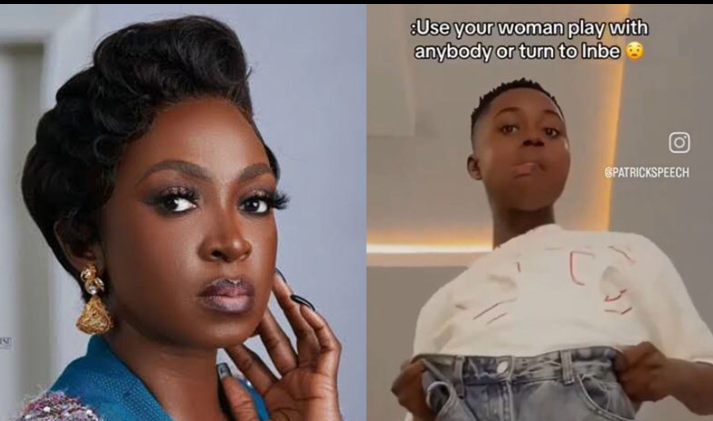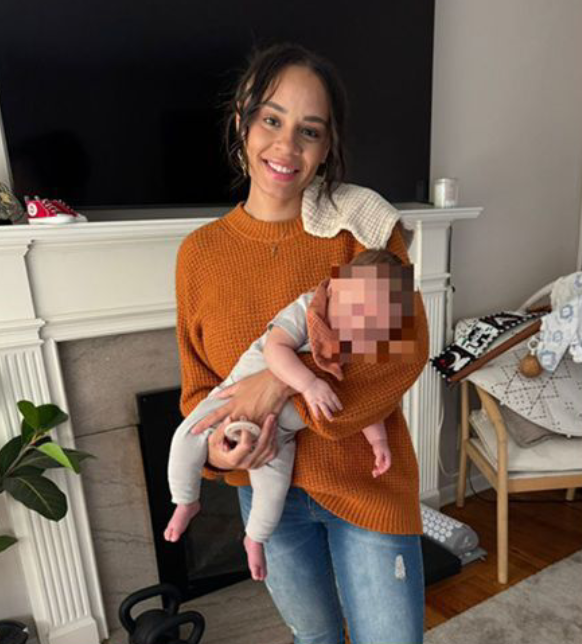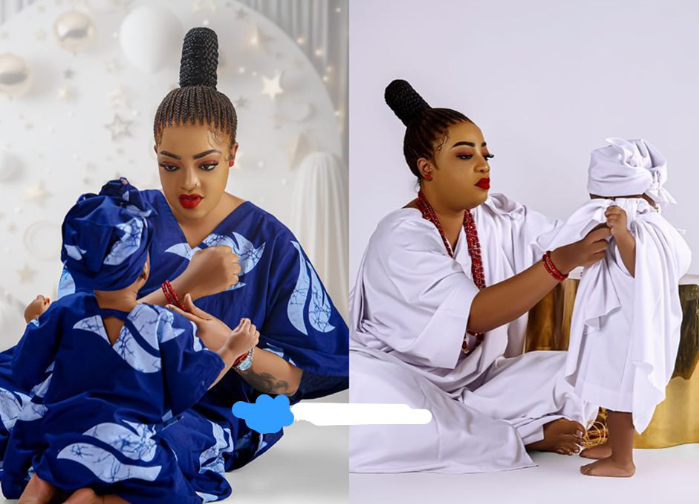
“Disability Is NOT a Joke!” – Kate Henshaw Slams TikToker Peller Over Mockery of Persons with Disabilities

A fiery storm of outrage erupted online this week after veteran Nollywood actress, Kate Henshaw, took to social media to condemn a viral video showing TikTok content creator, Peller, acting in a manner that mimicked individuals with intellectual and developmental disabilities. The video, which gained thousands of views in a short time, was intended as comedy but has since drawn intense backlash from both celebrities and advocacy groups. At the forefront of this criticism is Henshaw, who did not mince words in denouncing the skit, declaring emphatically, “Disability is NOT a joke!”
In her strongly worded post on X (formerly Twitter), Kate Henshaw expressed deep disappointment and anger over what she called a “cruel” and “unacceptable” trend. “Under no circumstance is this kind of video acceptable!!” she wrote. “Persons with Intellectual & Developmental Disabilities (IDD) are not to be ridiculed under any guise. Disability is NOT a joke!! It is cruel for this to be used as a trend.”
The video in question features TikToker Peller deliberately contorting his face and speech patterns in a way that mimics individuals living with cognitive and speech impairments. Set against upbeat music and filtered effects, the video was meant to be “funny” – a light-hearted clip among many others that flood the short-form video platform. But Henshaw, along with countless others, made it clear that there was absolutely nothing funny about it.
As the post gained traction, Henshaw’s tweet went viral, sparking a wave of conversations across platforms such as X, Instagram, and Facebook. Many fans praised the actress for speaking up for a vulnerable group often overlooked or subjected to discrimination. Comment sections were filled with words like “thank you,” “God bless you for this,” and “we need more voices like yours.”
The controversy comes at a time when digital creators are being scrutinized more than ever for the type of content they push into the public space. With platforms like TikTok, where virality can sometimes depend on shock value, bizarre behavior, or outrageous impersonations, many content creators walk a thin line between humor and harm. But as Henshaw’s comments prove, not everything is fair game.
Advocates for disability rights have since joined the conversation, using this incident to highlight the widespread issue of ableism in social media. According to them, what Peller did is not an isolated case but part of a disturbing trend in which people with disabilities are used as props for entertainment. Disability inclusion activist and founder of the IDD Support Nigeria Initiative, Chika Nnaji, issued a statement condemning the video and praising Henshaw’s intervention. “We are grateful that a public figure like Kate Henshaw is using her platform to call out this mockery,” she said. “For too long, persons with intellectual and developmental disabilities have been ridiculed, excluded, and dehumanized by the media. This must stop.”
The growing conversation also attracted comments from other Nigerian entertainers, some of whom echoed Henshaw’s sentiments, while others took a more cautious approach, urging for awareness and education rather than just outrage. Actor and TV personality Frank Donga tweeted, “We all have a responsibility to be better. Content creation should uplift, not diminish. If you don’t know what disability advocacy means, now is the time to learn.”
Meanwhile, TikToker Peller, the man at the center of the storm, has yet to issue a public apology or statement at the time of this report. His TikTok page, however, has been flooded with comments demanding accountability, while some fans continue to defend him, arguing that the video was “just comedy” and should not be taken seriously. Critics of that view argue that humor must have boundaries, especially when it comes at the expense of the dignity of others.
The wider implication of this controversy touches on Nigeria’s ongoing struggle with disability awareness and inclusion. Despite signing the Discrimination Against Persons with Disabilities (Prohibition) Act in 2019, enforcement of disability rights in the country remains weak, with social stigma still heavily entrenched in many communities. For many Nigerians living with intellectual and developmental disabilities, the kind of behavior displayed in Peller’s video is more than just an online joke – it is a reflection of the day-to-day discrimination and ridicule they face in real life.
Kate Henshaw, who has been a long-time advocate for social justice, ended her post with a passionate plea for empathy and education. “We need to do better. We need to understand that disability is part of the human experience. It’s not something to laugh at. It’s not a punchline. It’s not content for clout. We are talking about real people, with real lives, who deserve our respect and protection.”
Her words have sparked a wider movement on social media, with the hashtag #DisabilityIsNotAJoke trending as thousands of users reposted the clip with captions of disapproval and calls for Peller to take accountability. Influencers and celebrities alike have used the hashtag to raise awareness and share resources about intellectual and developmental disabilities, encouraging a culture shift in how people approach disability representation online.
As of now, it remains unclear whether TikTok will take any official action against the video or Peller’s account. However, this incident is likely to contribute to ongoing conversations about content moderation, ethical boundaries, and representation in digital spaces.
In an era where creators are pushing the envelope in pursuit of likes, shares, and views, Kate Henshaw’s stance is a bold reminder that empathy and human dignity must not be sacrificed at the altar of entertainment. Her voice, respected and unwavering, has reignited a vital conversation that Nigeria – and indeed, the global digital community – can no longer afford to ignore.
Whether this moment leads to real change or simply fades into the endless stream of trending topics remains to be seen. But for now, the message is loud and clear: disability is not a costume, not a skit, and certainly not a joke.


